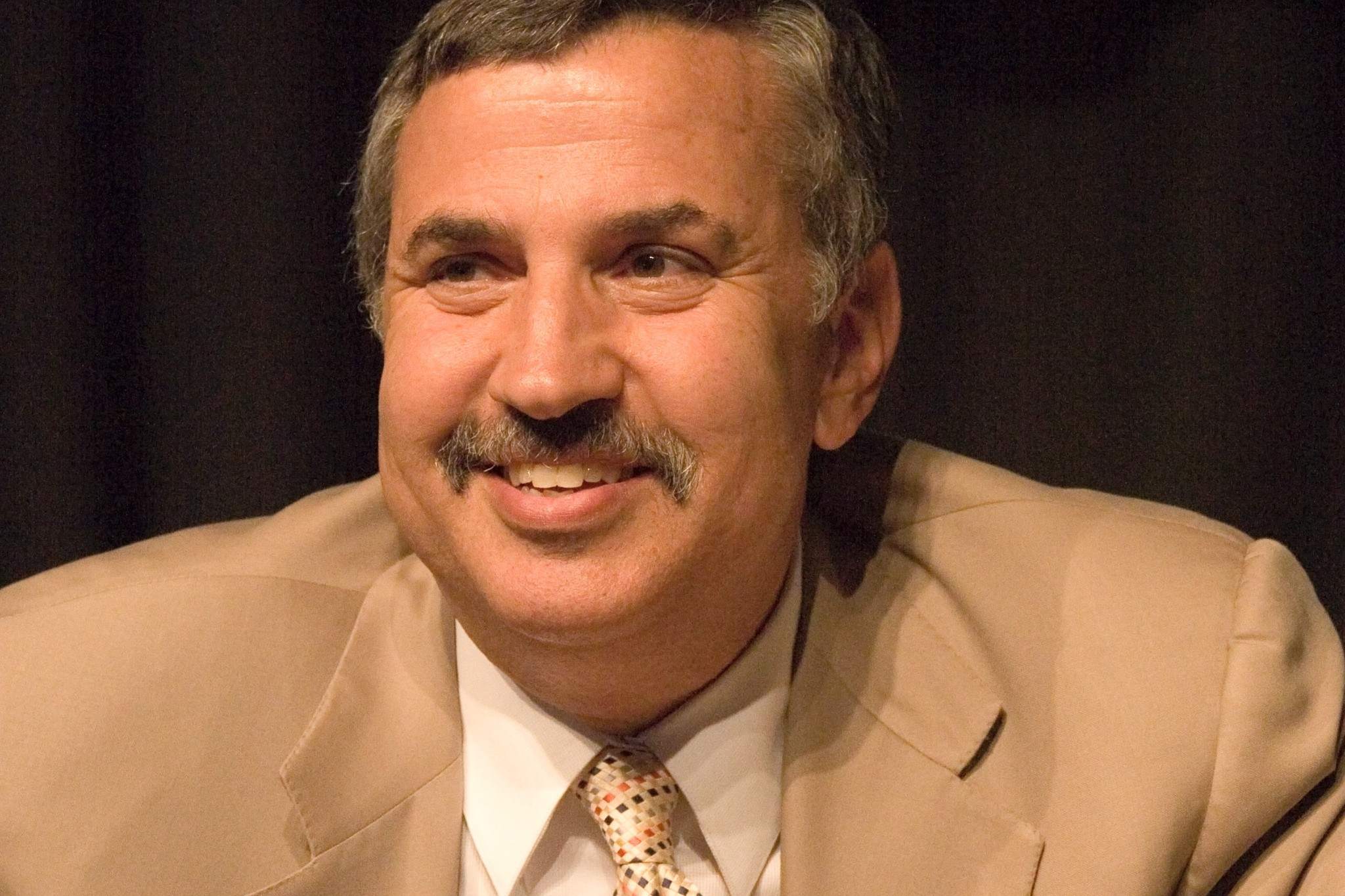
Who is Thomas Friedman? Thomas Friedman is a renowned American journalist, author, and three-time Pulitzer Prize winner. Known for his insightful analysis of global affairs, he writes for The New York Times, covering topics like foreign policy, economics, and environmental issues. His books, such as "The World Is Flat" and "Hot, Flat, and Crowded," have influenced how people think about globalization and climate change. Friedman’s unique ability to simplify complex topics makes him a favorite among readers. Want to know more? Here are 31 fascinating facts about Thomas Friedman that will give you a deeper understanding of his life and work.
Who is Thomas Friedman?
Thomas Friedman is a well-known American journalist, author, and three-time Pulitzer Prize winner. His work primarily focuses on foreign affairs, globalization, and environmental issues. Let's dive into some fascinating facts about him.
-
Born on July 20, 1953, in Minneapolis, Minnesota, Friedman grew up in a Jewish family.
-
He attended St. Louis Park High School, where he developed an interest in journalism.
-
Friedman earned a Bachelor’s degree in Mediterranean Studies from Brandeis University in 1975.
-
He later received a Master of Philosophy in Modern Middle East Studies from the University of Oxford.
Career Highlights
Friedman’s career is marked by significant contributions to journalism and literature. Here are some key moments.
-
He joined The New York Times in 1981 as a financial reporter.
-
Friedman served as the Times' Beirut bureau chief from 1982 to 1984.
-
He then became the Jerusalem bureau chief from 1984 to 1988.
-
His reporting on the Lebanese Civil War and the Israeli invasion of Lebanon earned him two Pulitzer Prizes.
-
In 1989, he won a third Pulitzer Prize for his coverage of the First Palestinian Intifada.
Notable Works
Friedman has authored several influential books that have shaped public discourse on various global issues.
-
"From Beirut to Jerusalem," published in 1989, won the National Book Award for Nonfiction.
-
"The Lexus and the Olive Tree," released in 1999, explores globalization's impact on the world.
-
"The World Is Flat," published in 2005, discusses the flattening of the global economic playing field.
-
"Hot, Flat, and Crowded," released in 2008, addresses climate change and global warming.
-
His 2011 book, "That Used to Be Us," co-authored with Michael Mandelbaum, examines America's challenges in the 21st century.
Personal Life
Friedman’s personal life offers a glimpse into the man behind the words.
-
He married Ann Bucksbaum in 1978, whose family owns a significant stake in General Growth Properties.
-
The couple has two daughters, Orly and Natalie.
-
Friedman is known for his love of golf and often plays in his free time.
-
He is also an avid fan of the Minnesota Vikings.
Awards and Honors
Friedman’s work has earned him numerous accolades over the years.
-
He received the Overseas Press Club Award for lifetime achievement in 2004.
-
In 2005, he was named to the Order of the British Empire (OBE) for his contributions to journalism.
-
Friedman was awarded the National Press Club's Fourth Estate Award in 2009.
-
He received the Golden Plate Award from the American Academy of Achievement in 2012.
Influence and Impact
Friedman’s ideas have had a lasting impact on public policy and global discourse.
-
His concept of the "Golden Arches Theory of Conflict Prevention" suggests that countries with McDonald's franchises are less likely to go to war with each other.
-
He coined the term "flat world" to describe the leveling of the global economic playing field.
-
Friedman has been a vocal advocate for environmental sustainability and renewable energy.
-
His writings have influenced policymakers, business leaders, and academics worldwide.
Criticisms and Controversies
Like any prominent figure, Friedman has faced his share of criticisms.
-
Some critics argue that his views on globalization are overly simplistic.
-
Others have accused him of being too optimistic about the benefits of free trade.
-
His support for the Iraq War has also been a point of contention among his detractors.
-
Despite these criticisms, Friedman remains a respected voice in journalism and public discourse.
Current Endeavors
Friedman continues to be active in journalism and public speaking.
- He writes a weekly column for The New York Times, focusing on foreign affairs, globalization, and environmental issues.
Final Thoughts on Thomas Friedman
Thomas Friedman’s influence on journalism and global discourse is undeniable. His ability to simplify complex topics like globalization, technology, and international relations has made him a household name. From his Pulitzer Prize-winning articles to his best-selling books, Friedman’s work continues to shape how we understand the world. His insights into the interconnectedness of our global society offer valuable perspectives for anyone interested in current events. Whether you agree with his views or not, his contributions to journalism and thought leadership are significant. As we navigate an ever-changing world, voices like Friedman’s help us make sense of the complexities around us. So, next time you pick up one of his books or read his columns, remember the impact he’s had on shaping modern thought. His work remains a crucial part of the conversation on global issues.
Was this page helpful?
Our commitment to delivering trustworthy and engaging content is at the heart of what we do. Each fact on our site is contributed by real users like you, bringing a wealth of diverse insights and information. To ensure the highest standards of accuracy and reliability, our dedicated editors meticulously review each submission. This process guarantees that the facts we share are not only fascinating but also credible. Trust in our commitment to quality and authenticity as you explore and learn with us.
